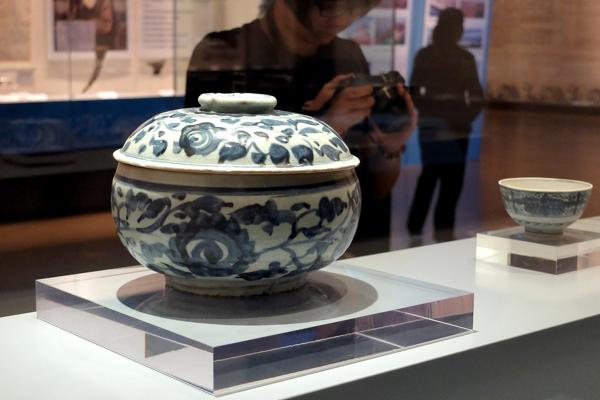
One of the 9,700 items of porcelain dating back to the Song Dynasty (960-1279) that Nan’ao One discovered.China Daily
Nanhai One:
The wreckage of this ship, about 30-meters long and 9-meter wide, from the Southern Song Dynasty (1127-1279) that sank near Yangjiang in Guangdong province was first found in 1987. But archaeological investigations into one of the country’s biggest ancient shipwrecks only began in 2007. Findings including 80,000 pieces of well-preserved porcelain are considered among the top relics from the Maritime Silk Road days.
Huaguangjiao One:
Found by fishermen near the Xisha Islands in 1996 and plundered in the following year, the wreckage of the 19-meter-long ship from the Southern Song Dynasty witnessed China’s first large-scale underwater archaeological expedition on the high seas between 2007 and 2008. Nearly 10,000 pieces of cultural relics, most of them produced in southeastern Fujian and Jiangxi provinces, were found.
The ship, with its six decks, reflects how advanced Chinese navigation was then.
Nan’ao One:
Remains of the ship from the late Ming Dynasty (1368-1644) were found in 2007 by local fishermen near Shantou town in Guangdong province. The rescue mission began in 2009. The archaeological team unearthed about 9,700 items of porcelain (pictured) dating back to the Song Dynasty (960-1279). It is speculated that the ship was used to smuggle goods, including copper, because at the time, such items were embargoed for export in China. It was also the first occasion in China when archaeologists used an underwater protective case to rescue the delicate objects.
Xiaobaijiao One:
Debris from the reign of Daoguang (1821-50) of the Qing Dynasty (1644-1911), found near Ningbo in Zhejiang province, has hardly been plundered. The wreckage was salvaged in July, five years after it was detected, and further studies are ongoing.